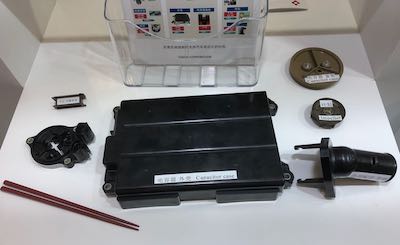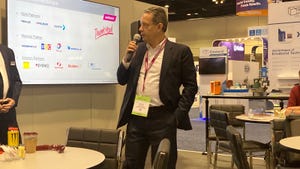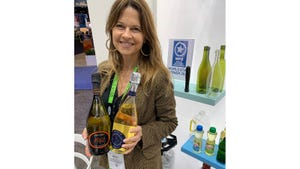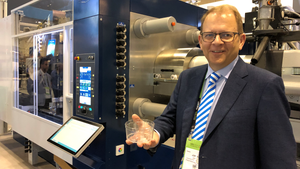Chinaplas: PPS recording explosive growth in EVs
Thermal management and sensor components are among the key applications
May 28, 2019

A key beneficiary of increased production of electric and hybrid electric vehicles (EVs/HEVs) is polyphenylene sulfide (PPS) resin. Compared with a vehicle powered by an internal combustion engine, which typically employs 700 g of PPS, EVs and HEVs utilize around 3–4 kg according to Tatsuya Seki, Assistant Manager, PPS Group, at Japan’s Tosoh Corp.
|
Capacitor cases and impellers are among applications of PPS in electric vehicles. |
Tosoh has developed multiple grades of its Susteel linear PPS for application in EV and HEV components that are subject to elevated temperatures during usage, such as capacitor cases, motor cores and housings, and invertor cores that exhibit superior heat cycle properties, which is a key performance requirement. Other applications where PPS is employed in include water pump impellers and bus bars. EVs and HEVs employ water pumps for thermal management—battery cooling and electric motor cooling. PP is also used in exterior sensors in vehicles on account of its dimensional stability.
Tosoh has also developed high flow grades of its linear PPS, 1140-A6 and 1140-A7, with glass fiber loadings of 40 percent. “Normally, linear PPS doesn’t process as well as cross-linked PPS, but you exhibit superior toughness,” says Seki.
Finally, Tosoh has developed a special grade of PPS for overmolding of metal inserts. The grade bonds to metal inserts that have been surface-treated to realize porous surfaces.
While polybutylene terephthalate (PBT) resin has lost out to PPS where heat resistance is required, it still plays an important role in automotive connectors according to Hisashi Tomita, Managing Director of Polyplastics China Limited. Polyplastics supplies both PBT and cross-linked PPS. “There is a lot more electronics in today’s autos so while PPS is more suited to drive train applications, we are still seeing significant volumes of PBT in auto applications.” Tomita notes that PBT is preferred by Japanese OEMs, while US and European automakers typically employ polyamide in connectors.

About the Author(s)
You May Also Like





